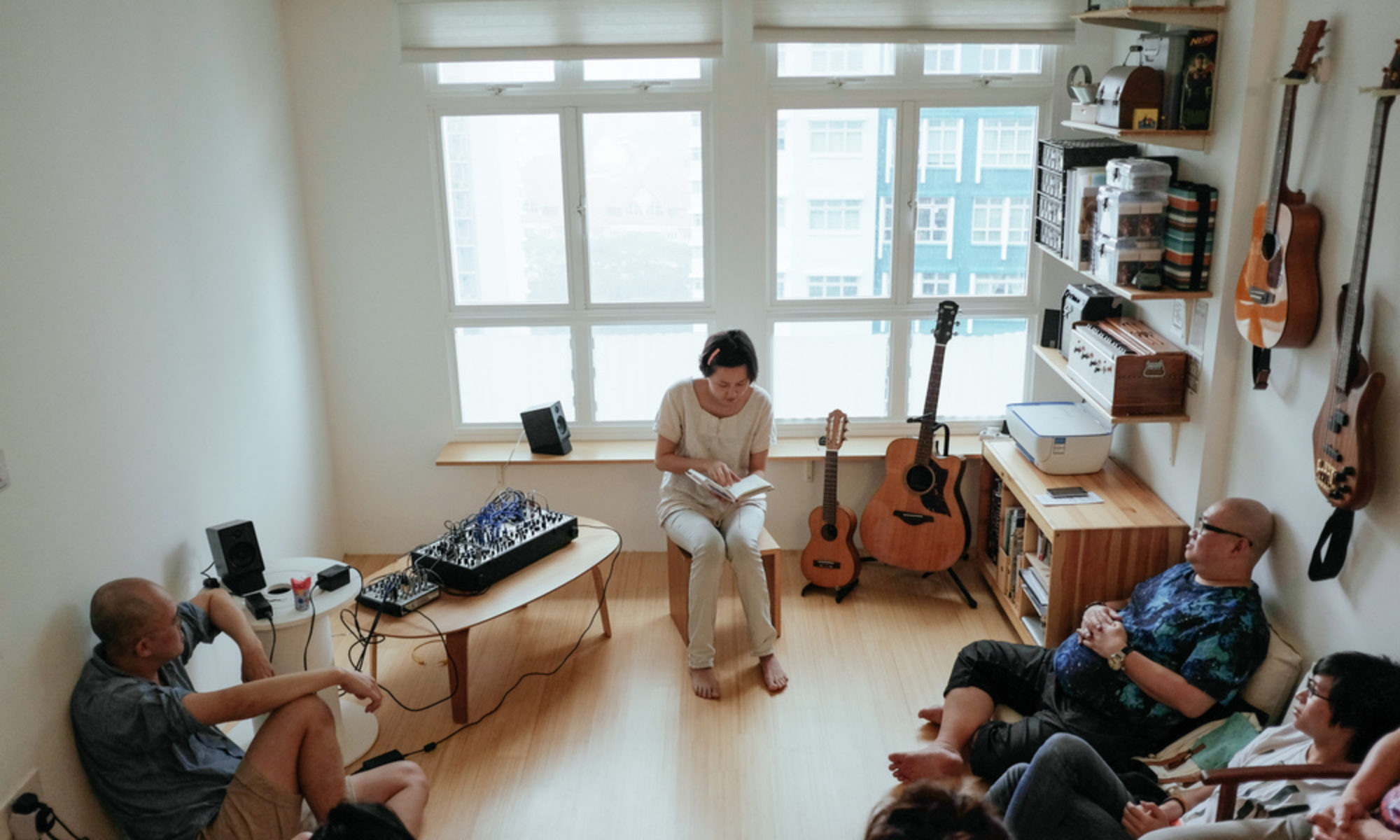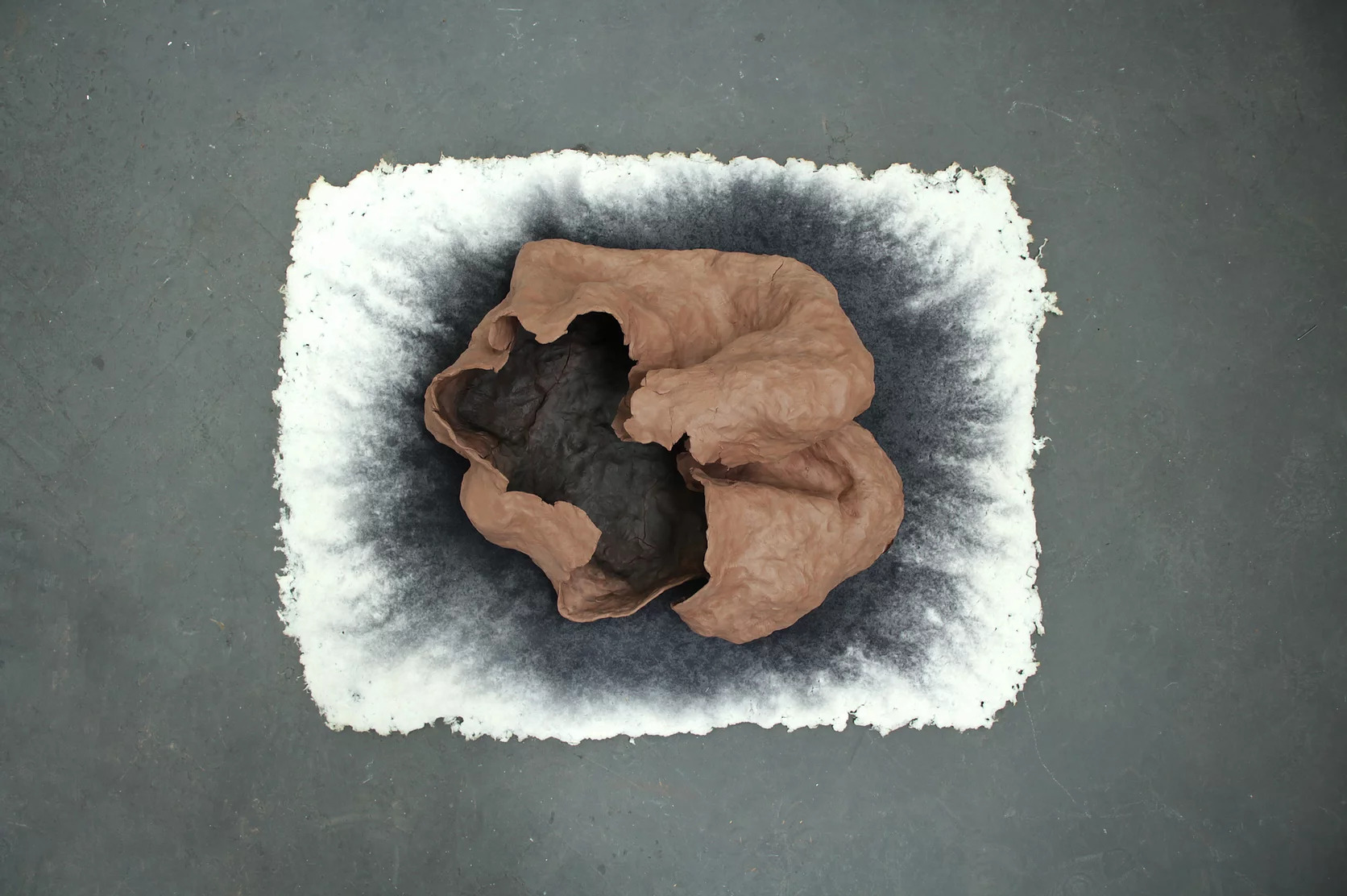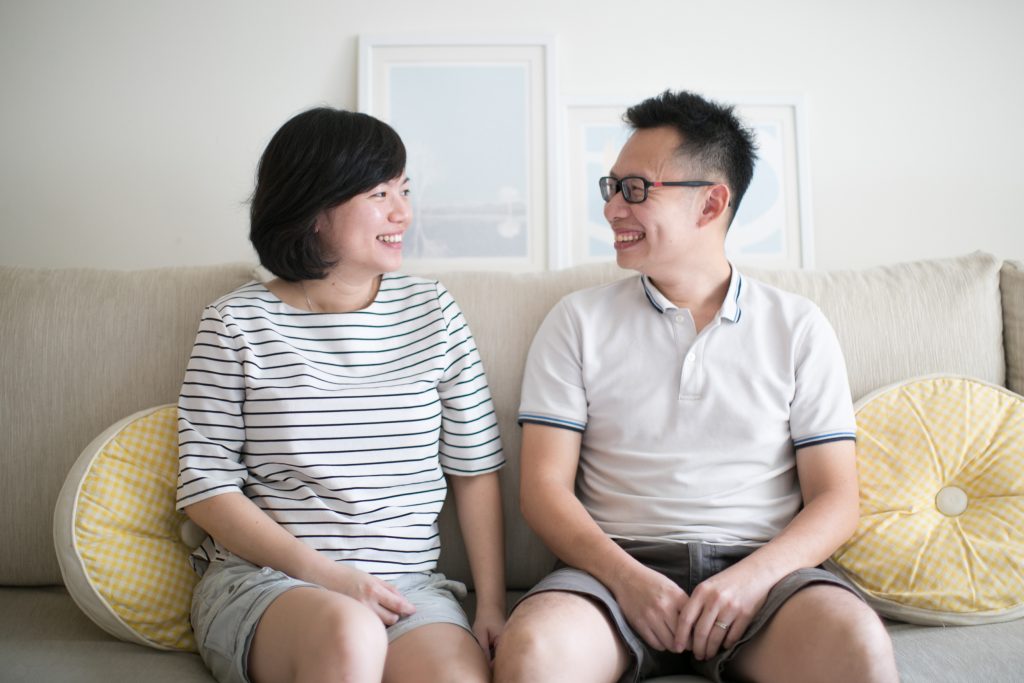
Kenneth Lau (b. 1982) and Lee Huiwen (b. 1981) founded Studio Asobi to try and explore a slower and simpler way of life. From their cosy little home in the heartlands of Singapore, they create handmade pottery and share their love of the craft with fellow pilgrims.
They enjoy watching singing competitions, cycling slowly on cloudy days, and laughing about their son’s antics while they are still cute.
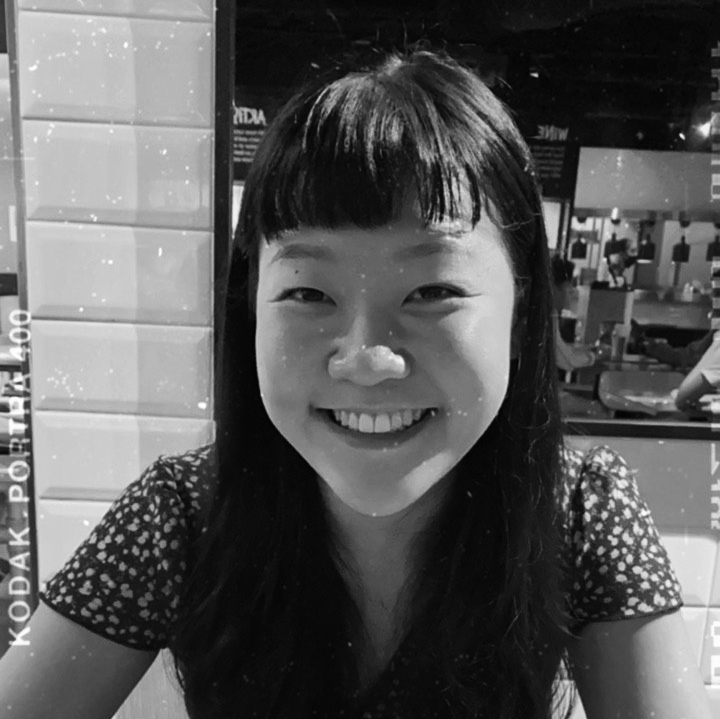
Lee E Mae (b. 1996) is a 24-year-old trying to carve out her own path of creative expression after art school. A librarian by day, she steals every other pocket of time to sink her fingers into a good old lump of clay. She believes that we can inhabit our lived realities in new spatial, experiential and poetic ways through art and making.
In this second half of their conversation, Kenneth, Huiwen, and E Mae discuss the attraction of the arts and the place of artists in the church. This discussion was held in response to framing questions provided by Jonathan Chan. It has been edited for length and clarity.
What draws you to the arts?
Emae: It’s such a luxury to be able to create something just for the sake of creating something… just bringing beauty into the world. I think that is something really special and different. I think that in my and Jon’s church, in our age group, not many people pursue the arts. And you know, doctors save lives, social workers are out helping people, and I’m like, what do I do ah.
Huiwen: I draw! (laughter)
Emae: I think the revelation for me was when I realised that all these compulsions that I have reflect our true Maker. Other people mirror God’s characteristics by singing or patching up what is broken, but for me, what is stronger is that I love to create stuff, I like making things new out of nothing.
From then on I was like, I don’t have to answer to anybody on why I chose to pursue this. It’s just natural. It just comes out of me. If I don’t, then I feel stifled. If I don’t, then I don’t feel fulfilled. And then the pieces just clicked together and I stopped thinking about these questions so much.
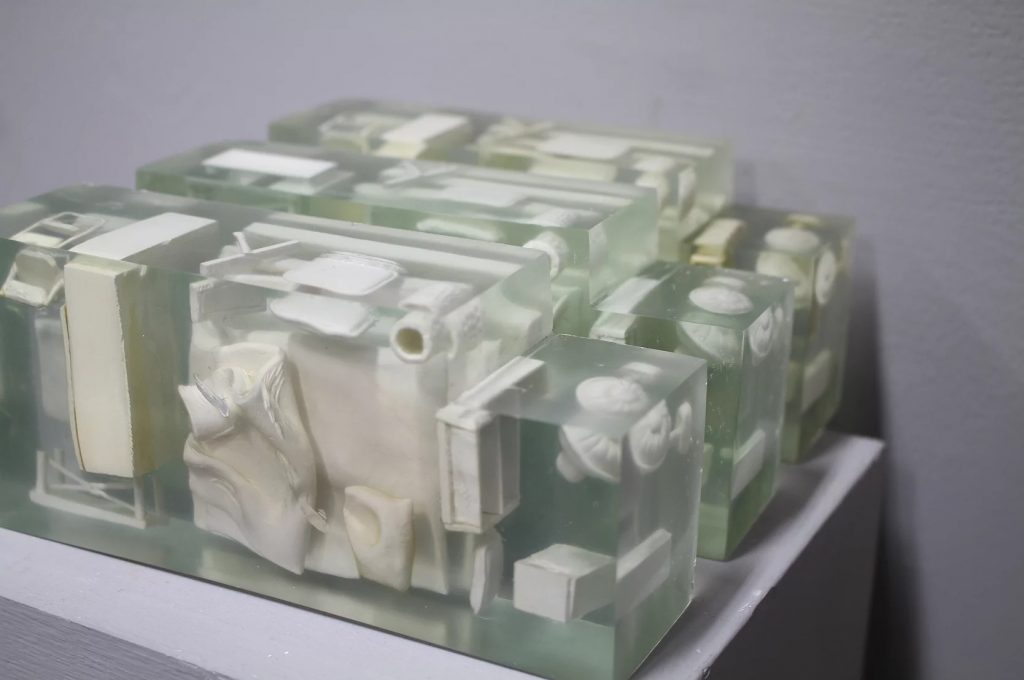
Polyresin, paper clay
Kenneth: Talking about making, I think we had this question in church during cell on how you relate to God. For me, one of my primary ways of relating to God is as my Creator. For some people they’d feel like God is their Father and therefore feel very close to Him. But when I think of God as my Creator, I’m really in awe. God made me, whether it is through millions of years of evolution, or in an instant, nobody knows. Whatever it is, I am a created being and I think I get the privilege of experiencing that when I make something. I just feel this sense of magic, like something’s happening out of nothing. And I feel very loved to know that I’m created by God.
Huiwen: Actually on this topic of making, a moment where I felt keenly aware of this was during our honeymoon. We were in New Zealand and staying at all of these bed and breakfasts and it astounded us how people would re-tile their own bathrooms. They were so DIY, hands-on, and we realised it’s actually that they’re special. It’s just that as Singaporeans we have it too easy and don’t need to do anything with our hands as it’s convenient to pay for a service.
I do feel like this compulsion to create has always been there. I mean, it’s in Genesis, this whole idea of how we’re made in the image of God and how civilisations couldn’t have functioned without people getting their hands dirty when building houses, making pots. Something we like to share with people is that a lot of artifacts left behind by ancient civilisations are pottery because they last for so long even though they’re so fragile. Maybe after the Industrial Revolution, the making got outsourced to very specialised tradespeople and people actually lost this. We find ourselves trying to recover from that.
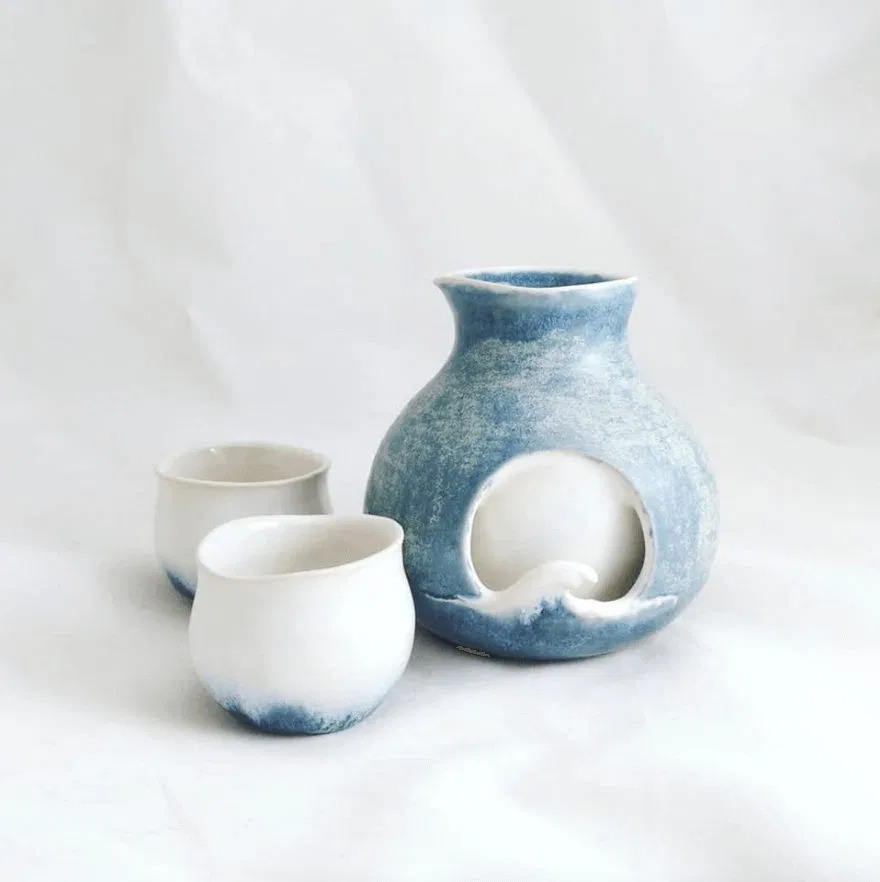
During our workshops, there’s so much of this narrative we’ve been seeing where they’ll come and be like, “Oh, I am very bad at art one… I’ll make a mess…” You hear these things spoken out and you have to kind of restore them. I’m like, “No, it’s okay. Even if you make a hole, the clay is very forgiving. I can teach you how to patch it back.” And then they have this sort of safe space to fail, or even embrace the imperfections. Sometimes after talking to them, they’ll be like, “Oh yeah, I don’t need to make it too even la. I purposely want to leave it a bit raw.” Then you know that something has happened because they start to see that it’s actually okay. Life is like that. There’s beauty in imperfections.
On a separate note, there’s this book I was reading called Awaking Wonder by Sally Clarkson. She’s a writer who talks more about parenting and marriage. It was interesting because it talks about her passion for awakening wonder and imagination. I feel like that’s a very nice posture to have as Christians. Oh, like, let’s think… “Why did God make the bees this colour? Why are there so many varieties of flowers? Look at the stars!” Just to have this sense of awe and wonder, pondering just what we observe from a posture of excitement. I wish somebody had done that for me when I was young, you know? I hope now that we have a young child that we can do that for him.
Kenneth: In engaging in pottery, it helps to liberate our parenting. We see this clay: it can become anything. And we see all of our peers engaging in different kinds of work, but we can be artists. Then when we look at our child: there’s endless potential for him. We don’t have to parent him in a way that other people say we have to.
Huiwen: It’s like this analogy of working with a wheel, right. It starts off with a lump, but who knows what it will become? Is it going to be a cylinder? Is it going to be a pot? You have to ask the potter because only the potter knows. The clay has no idea, like, “Uh, am I supposed to be in this or that shape”. I think that also helps us to hold a bit less tightly. Kind of like who we are, what we do, and all these things, because really, who knows?
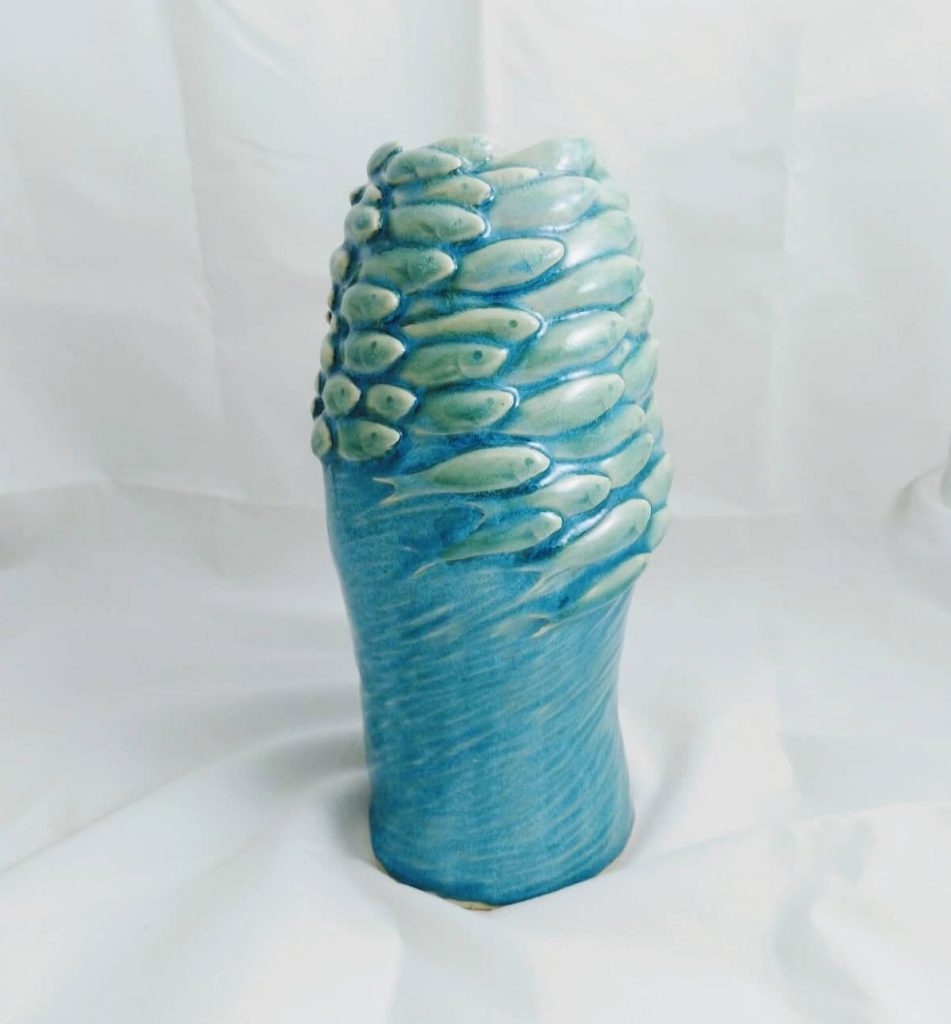
***
How have you experienced being a Christian in creative practice and, conversely, as a creative practitioner in the church? What are some misconceptions you’ve encountered in either sphere?
Huiwen: Based on some conversations I’ve heard, sometimes when we’re artists as a group we feel very misunderstood or used. But actually, I feel like it’s also too much to say that because artists are just a type of person right. We are not so special until we need to be cared for in a particular sense. The church is really made out of different parts.
And I feel like actually, the tension that E Mae felt with art history is that we are all actually fighting for that lens that is being put on art, the value of things. Who decides what is fine art, or that it should cost 5 million dollars, or that it should cost 5 dollars? As artists, do we help people to see reality for what it really is? If you’re able to help contribute to that, I think then that’s our role. We bring beauty and because of how evocative it is to our senses when we view, hear, or touch something, it brings us to a different kind of perspective.
I think that’s a good place for artists to participate in the role of church life. In the past, it’s like all these frescoes of the big, nice churches in Europe. Many people who were illiterate would just look at these paintings and that’s how they would understand theology. That’s how they received information and the biggest patrons were actually for religious purposes. Even for all religions, it’s always this question of how can we use beauty, expressions, and tangible objects to bring across that sort of reverence?
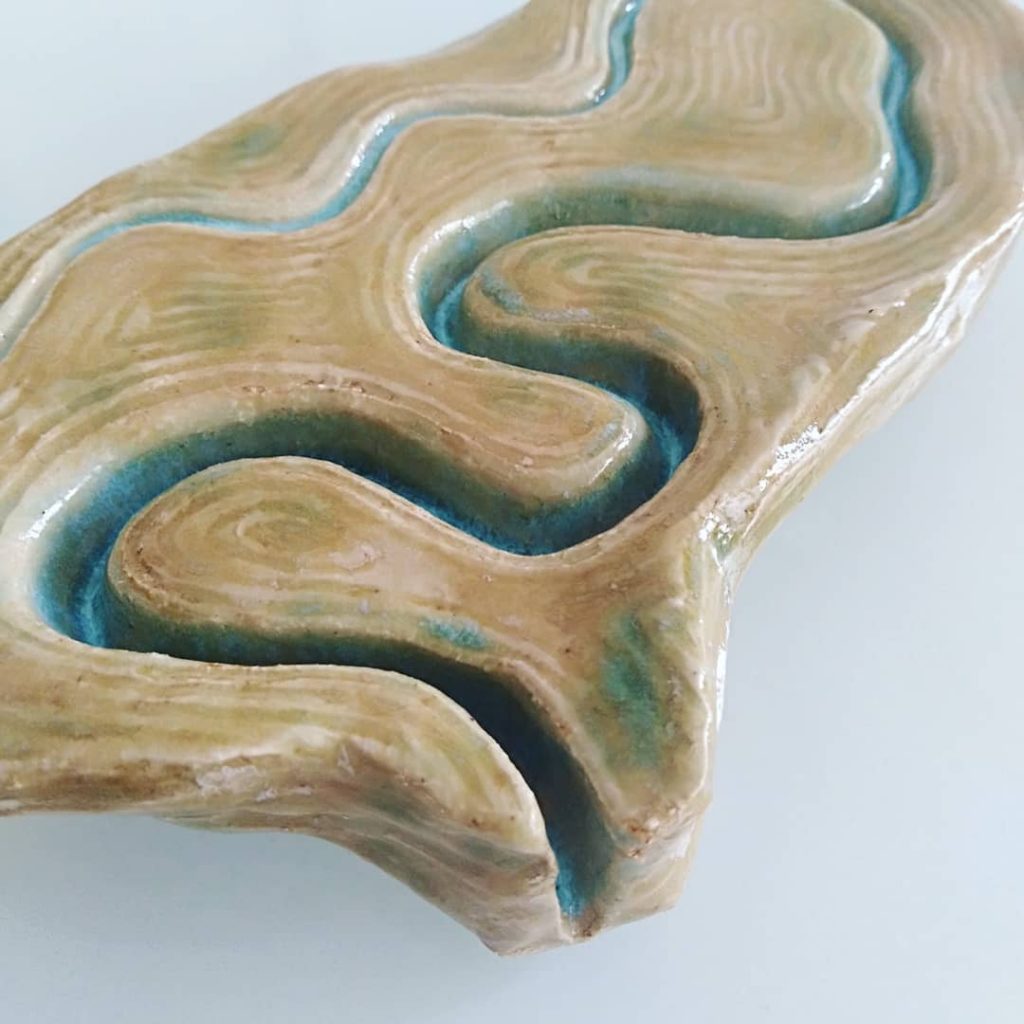
Kenneth: I always felt very out of place, even in church… you could feel like people value you to a certain extent because maybe you can write a bit better or you have something special, but they also don’t know how to talk to you. I always felt like I needed to fit in, to communicate in people’s language. I guess with what we create, it’s also like us putting feelers out to connect with people.
I think that’s why I don’t really do the kind of art that I previously did that is very imaginative, because I’m starting to think that I don’t really know what to tell people. What do I know about life that is so much better? But in having a common place of connection, I think that’s where we can discover together what is important, like when Jonathan shares about poetry. I also write poetry and you don’t have to compare who is better. There’s something that means we understand, that tells us a little bit about our own lives. That helps me to live in a bit more secure way, knowing that there are people in the same boat.
Huiwen: Actually I think that the arts are not as non-utilitarian as we may feel. For a large part of my life, the arts played such an important role. Just having these books to read, music to listen to, these random poems to muse over. It is actually very formative to your being, your soul, and your whole mindset. I love Chinese and I studied some Chinese poems. I mean, there’s this lady sitting there, and she could have been wallowing in self-pity from the way she writes her words. And somehow for thousands of years, people still read her four liners now and are still empathising with whatever she was feeling for that day.
I love being touched by these things. Maybe that says what we lack in life, right? Everything is just so efficient and pragmatic. But why did God make so many varieties of fungus or flowers? He doesn’t need to, right? But He does. And I guess that’s the point? Just going into the field and feeling like, “Wow”, like, “I don’t know why I God made this, but it’s beautiful and I love it.”
***
Bear A Fruit in Me
Kenneth Lau
Give me love
When my love fades
Give me joy
When my heart aches
Give me peace
When the storms rage
Spirit bear a fruit in me
Oh give me ears to hear
Oh give me eyes to see
Give me grace to live
This life you gave to me
Oh give me ears to hear
Oh give me eyes to see
Spirit bear a fruit in me
Keep me patient
For the hard days
Keep me kind
When I’ve nothing kind to say
Keep me good
When evil comes my way
Spirit bear a fruit in me
Keep me faithful
For this long race
Keep me gentle
Before the harshest gaze
Take control
When I’m wandering away
Spirit bear a fruit in me
Oh give me ears to hear
Oh give me eyes to see
Give me grace to live
This life you gave to me
Oh give me ears to hear
Oh give me eyes to see
Spirit bear a fruit in me
Cover image: Handmade Paper Study (2019) by Lee E Mae.
Handmade cotton paper, unfired terracotta, black ink. Image taken by the artist
Websites
Studio Asobi: studioasobi.com
Lee E Mae: emaelee.com
